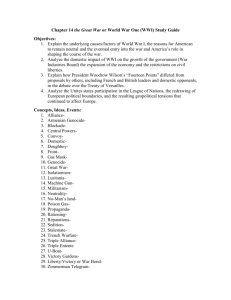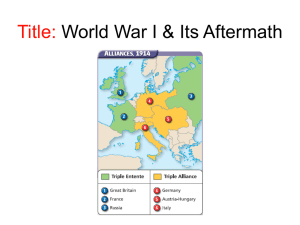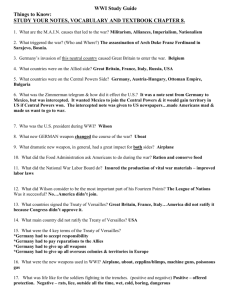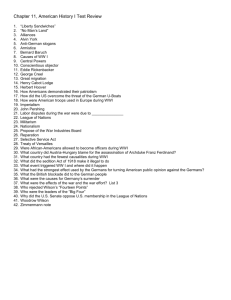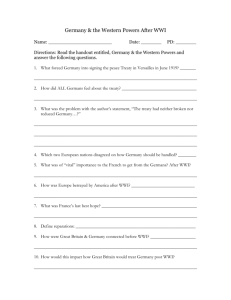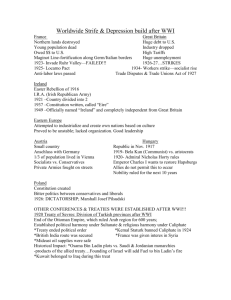Chapter 33 Quiz - middletonhsapush
advertisement
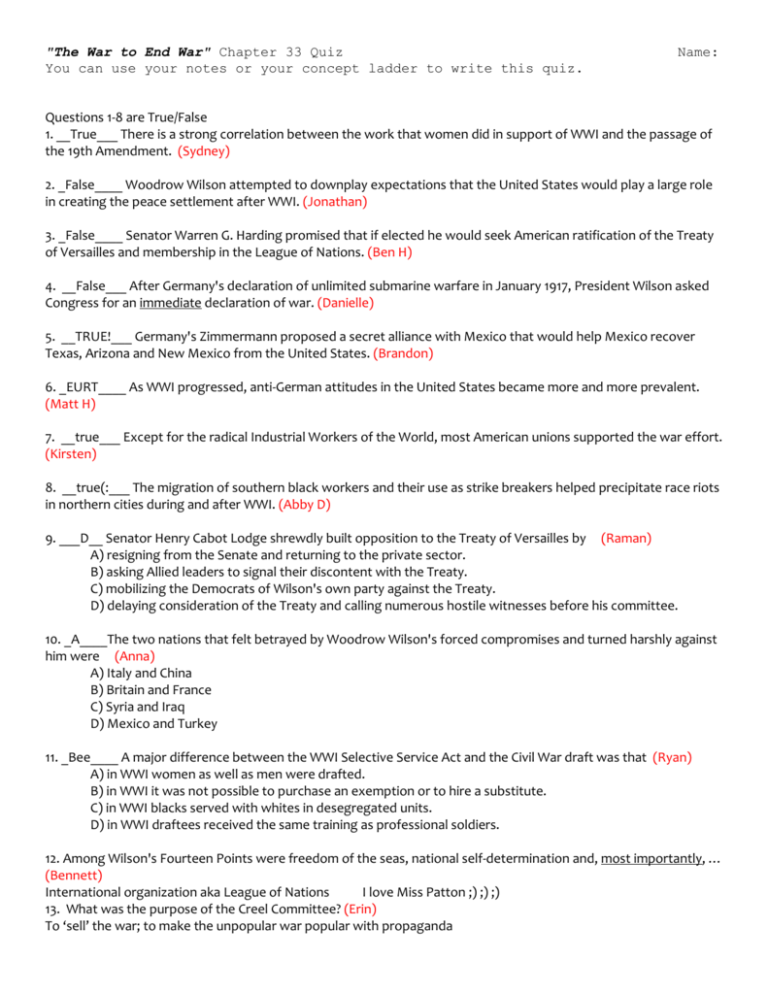
"The War to End War" Chapter 33 Quiz You can use your notes or your concept ladder to write this quiz. Name: Questions 1-8 are True/False 1. __True___ There is a strong correlation between the work that women did in support of WWI and the passage of the 19th Amendment. (Sydney) 2. _False____ Woodrow Wilson attempted to downplay expectations that the United States would play a large role in creating the peace settlement after WWI. (Jonathan) 3. _False____ Senator Warren G. Harding promised that if elected he would seek American ratification of the Treaty of Versailles and membership in the League of Nations. (Ben H) 4. __False___ After Germany's declaration of unlimited submarine warfare in January 1917, President Wilson asked Congress for an immediate declaration of war. (Danielle) 5. __TRUE!___ Germany's Zimmermann proposed a secret alliance with Mexico that would help Mexico recover Texas, Arizona and New Mexico from the United States. (Brandon) 6. _EURT____ As WWI progressed, anti-German attitudes in the United States became more and more prevalent. (Matt H) 7. __true___ Except for the radical Industrial Workers of the World, most American unions supported the war effort. (Kirsten) 8. __true(:___ The migration of southern black workers and their use as strike breakers helped precipitate race riots in northern cities during and after WWI. (Abby D) 9. ___D__ Senator Henry Cabot Lodge shrewdly built opposition to the Treaty of Versailles by (Raman) A) resigning from the Senate and returning to the private sector. B) asking Allied leaders to signal their discontent with the Treaty. C) mobilizing the Democrats of Wilson's own party against the Treaty. D) delaying consideration of the Treaty and calling numerous hostile witnesses before his committee. 10. _A____The two nations that felt betrayed by Woodrow Wilson's forced compromises and turned harshly against him were (Anna) A) Italy and China B) Britain and France C) Syria and Iraq D) Mexico and Turkey 11. _Bee____ A major difference between the WWI Selective Service Act and the Civil War draft was that (Ryan) A) in WWI women as well as men were drafted. B) in WWI it was not possible to purchase an exemption or to hire a substitute. C) in WWI blacks served with whites in desegregated units. D) in WWI draftees received the same training as professional soldiers. 12. Among Wilson's Fourteen Points were freedom of the seas, national self-determination and, most importantly, … (Bennett) International organization aka League of Nations I love Miss Patton ;) ;) ;) 13. What was the purpose of the Creel Committee? (Erin) To ‘sell’ the war; to make the unpopular war popular with propaganda 14. Why was Senator Lodge opposed to the Treaty of Versailles? (Brittany) He was opposed to the League of Nations and entangling alliances. He wanted congress to keep the ability to declare war. 15. On the last page of the chapter, Pageant uses a "table analogy" (complete with picture) to help you understand the problems with the Treaty of Versailles. Explain this analogy. (Andrew S) The treaty of Versailles and the League of Nations needed support from France, Britain, Italy, and the United States to be held up. Without the United States “leg support” it couldn’t stand.




